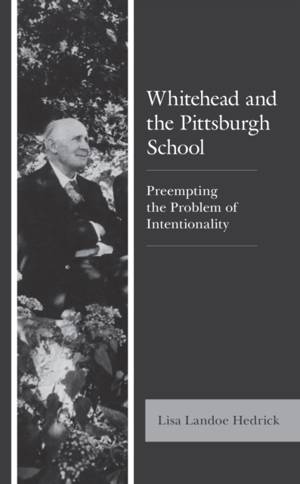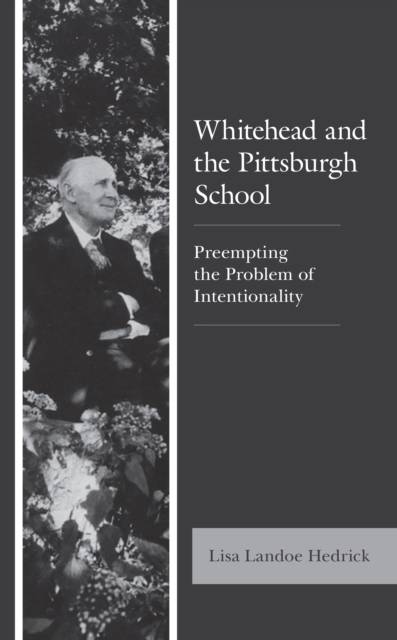
- Afhalen na 1 uur in een winkel met voorraad
- Gratis thuislevering in België vanaf € 30
- Ruim aanbod met 7 miljoen producten
- Afhalen na 1 uur in een winkel met voorraad
- Gratis thuislevering in België vanaf € 30
- Ruim aanbod met 7 miljoen producten
Zoeken
€ 69,45
+ 138 punten
Uitvoering
Omschrijving
Whitehead and the Pittsburgh School: Preempting the Problem of Intentionality proposes a revisionary history of the relationship between Alfred North Whitehead and analytic philosophy, as well as a constructive proposal for how thinking with Whitehead can help disabuse analytic philosophy of the problem of intentionality. Lisa Landoe Hedrick defines "analytic" philosophy as primarily the intellectual tradition that runs from Gottlob Frege to Bertrand Russell to Wilfrid Sellars, or, geographically speaking, from Vienna to Cambridge to Pittsburgh between the twentieth and twenty-first centuries. As key members of the Pittsburgh School of philosophy, Robert Brandom and John McDowell pick up the Sellarsian project of reconciling nature and normativity in different ways, yet each of them presupposes a problematic relationship between language and the world precisely bequeathed to them by an implicit metaphysics of subjecthood that characterized analytic thinkers of the early twentieth century. Hedrick both investigates Whitehead's published and archived critiques of early analytic thought--as an extension of a wider critique of modern philosophy--and employs Whitehead to reimagine nature and normativity after the problem of intentionality by way of his aesthetics of symbolism. This book thereby builds upon a burgeoning effort among philosophers to interface process and analytic thought, but it is the first to focus on contemporary analytic thinkers.
Specificaties
Betrokkenen
- Auteur(s):
- Uitgeverij:
Inhoud
- Aantal bladzijden:
- 222
- Taal:
- Engels
- Reeks:
Eigenschappen
- Productcode (EAN):
- 9781793646590
- Verschijningsdatum:
- 3/04/2023
- Uitvoering:
- Paperback
- Formaat:
- Trade paperback (VS)
- Afmetingen:
- 152 mm x 229 mm
- Gewicht:
- 335 g

Alleen bij Standaard Boekhandel
+ 138 punten op je klantenkaart van Standaard Boekhandel
Beoordelingen
We publiceren alleen reviews die voldoen aan de voorwaarden voor reviews. Bekijk onze voorwaarden voor reviews.







